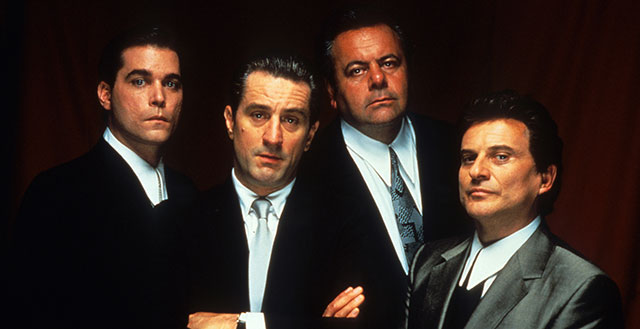
It's a sign of the times when a shatteringly violent, profanity-laden mob movie can translate into a joyous, feel-good experience. The film in question was Martin Scorsese's Goodfellas, and it was the first film I was able to watch on the big screen in close to five months. This, of course, was owing to the disruption from the COVID-19 pandemic.
Given my separation anxiety, it's likely that any film, even the most mediocre, would have translated into something magical. As it turns out, there's something deliciously ironic about the fact that a riveting gangster masterpiece should come to fill me with life-affirming joie de vivre. Forget the fact that Scorsese's hard-hitting film deals with profoundly unpleasant and dangerous individuals. The sheer gut-punch energy of the movie is so overwhelmingly thrilling that it was like euphoria injected into my veins. If that doesn't sum up the topsy-turvy world of 2020, then I don't know what does. At the same time, it also sums up the majesty of the big screen experience.
Goodfellas is celebrating its 30th anniversary in 2020, and is one of the movies showing as part of Cineworld's re-opening slate. It bears little introduction. Considered by many as Scorsese's finest achievement, the film adapts Nicholas Pileggi's book Wiseguy (Pileggi worked on the screenplay), which details the story of Henry Hill. A mobster turned FBI rat, Hill had a front row seat as far as the inner-workings of the mob were concerned. Day-to-day life was consumed with murder, hijackings (including the notorious Lufthansa job, dramatised in the film) and rampant corruption.
The ensuing movie is a whip crack of energy, barrelled along by Scorsese's eerily intuitive camerawork, Thelma Schoonmaker's perfectly calibrated editing and a delirious soundtrack of pop and rock hits. The music steadily evolves from 1950s dreamboat tones into something far more aggressive and hard-edged, mirroring the descent into hell felt by the film's characters, primarily Ray Liotta's Hill.
I was, perhaps understandably, nervous stepping over the threshold at Cineworld in Yate. This would be the first indoor environment barring my flat and the local supermarket that I'd stepped into for several months. Once inside and seated, however, it was remarkable how easily I slipped back into that blissful state of immersion, almost as if I'd never been away. It helped, of course, that I was in Scorsese's hands: with Goodfellas, he arrests you by the throat and never lets go, from the opening car trunk murder to the Great Train Robbery-invoking finale.
This was my first time experiencing Goodfellas on the big screen, and it illuminated nuances that had been diluted via years of TV and DVD watches. For one thing, the aspect ratio: shot in 1.85:1, the film's image deploys greater height than an anamorphic presentation, allowing the various mob heavies (captured by DP Michael Balhaus) to loom large over the cinema audience. What better way to ensure an intimidating atmosphere? This is something that was pointedly missed by my years spent watching it on the small screen.
There's also a remarkably cohesive relationship between narrative and tone. The film unfolds as a series of vignettes, from Hill's young life as an aspiring mobster, to his relatively privileged role as a man on the inside, to his eventual betrayal of his former comrades. Said vignettes, or episodes, alternate between savage violence, raucous laughter and reams of materialistic excess.
That we don't know when the rug is going to be pulled out (at least, on first viewing) on a scene to scene basis is testament to the mob lifestyle. As Hill himself says, these guys thrive on unpredictability, as "murderers come with smiles". By structuring the movie in this episodic fashion, with its whiplash-inducing turns from horror to humour and back again, Scorsese is well-positioned to make us feel the contradictory pressures of the life that's being depicted.
This is well-tailored to the material, of course. Unlike the top-ranking heavies in The Godfather, the characters in Goodfellas are much further down the food chain. In relative terms, they're pondlife, where there's much more to prove. This means that the film perpetually crackles with an air of threat and violence, nowhere moreso than in the scenes with Joe Pesci's Tommy DeVito.
Pesci won an Oscar for his depiction of the frighteningly reckless Tommy, a loose cannon who seemingly has no moral compass. Whether this entails shooting hapless Spider (Michael Imperioli) in the foot and later, fatally, in the chest, or ice-picking the garrulous Morrie (Chuck Low) in the back of the neck, Tommy is someone for whom murder is a fact of life. Yet the brilliance of Scorsese and Pesci's approach comes in the incidental scenes, especially those with Tommy's beloved mother (a scene-stealing Catherine Scorsese, the director's own mum), whose presence elicits affection and warmth from the otherwise appalling mobster.
As mentioned, the movie is like an emotional Rubik's Cube, constantly wrongfooting us as to our perception of these people, but never being crass enough to suggest that their lifestyle is aspirational. That brings me back to the subject of tone: although the film's scene-to-scene narrative progression thrives on contradiction, the film's overraching sense of morality follows a much more traditional pattern, one that has consumed mankind since time immemorial.
It is that most cinematic of conceits, the seductive nature of evil, which first lures in the teenage Henry Hill and, later, Hill's eventual wife Karen (Lorraine Bracco). The latter deploys an effectively self-deceiving narration (brought into greater focus via the big screen experience) where she pinballs between attraction to the man, and narcissistic attraction to the mob lifestyle. We can hear Karen actively addressing her own contradictions as she's repelled by the revelations of Hill's operations, while simultaneously turning a blind eye to them as she's corrupted by money and decadence.
Around the midway point, with the savage murder of gangster Billy Batts (Scorsese regular Frank Vincent), the film begins a slide into darkness that never lets up. From here on out, we can sense that the materialistic air of the lifestyle is curdling and souring in the background, even when the characters are ostensibly joking and laughing with each other in the foreground. Scorsese is never glib enough to suggest that these people are here to be idolised or revered; what he's doing is showing how individuals can be sucked in, only to later have the dream turn around on them as rampant violence and betrayal takes over.
The typically brilliant soundtrack cues us into this. Batts' savage beating is accompanied by Donovan's plaintive 'Atlantis', a darker shift in tone from the earlier pop tones of Bobby Vinton and The Harptones. The latter's 'Life is But a Dream' accompanies the punchdrunk Karen accepting exorbitant monetary gifts during her marriage to Henry. Scorsese's knack of fine-tuning the aural, as well as visual, nature of his movies, continues as the soundtrack further takes on melancholic tones. This is especially apparent during the jaw-dropping 'Layla' montage, which takes in the aftermath of the Lufthansa heist as the scheming Jimmy Conway (a chilling Robert De Niro) eliminates all his loose ends.
The apex of the movie is the coke-fuelled, Harry Nilsson-soundtracked descent into mayhem during the climax. As mentioned, Scorsese highlights particular episodes in Henry Hill's life, using them as a microcosm of wider mob corruption. Yet tonally, this is where the movie has been headed all along: we know that following Henry's earlier pride, the fall would come, and in spectacular fashion.
For that reason, the movie has an almost mythical resonance: Hill's mistakes are those that have been echoed down the generations throughout mankind's history, with the mistaken allure of success eventually spiralling into chaos. The breakneck pace of Schoomaker's remarkable editing, coupled with the convincingly frazzled and jaded pertormance from Liotta, pulls us in with almost docudrama levels of precision.
Absorbing all of this on the big screen, it was as if I was watching the movie with fresh eyes. This, despite the fact that I must have seen Goodfellas upwards of 20 times. Sat in my seat, I was unable to divert my attention away from the image, a testament to Scorsese's capabilities for sure, but also a testament to the immersion of the environment. Goodfellas, in this particular context, demanded every ounce of my attention and respect (fittingly enough), moreso than watching it at home.
When a pistol-toting Joe Pesci can have me grinning from ear to ear, it's not his actions of the character that are enthralling me so much as the context in which he appears. It was everything I had been missing and pining for over the last few months. It was a purity of experience that distilled and encapsulated what it is that love about the movies. And it redeemed my melancholy, keenly felt absence from the big screen.
Click here to book your tickets for Goodfellas, now showing at Cineworld cinemas in England.
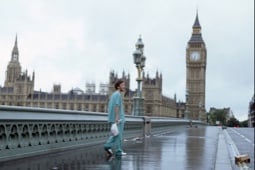
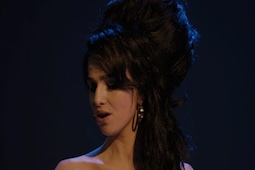
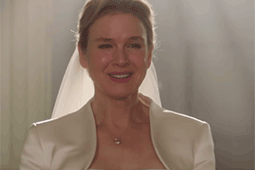
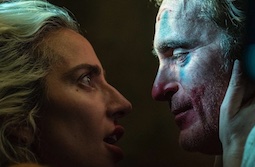
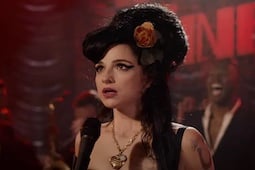
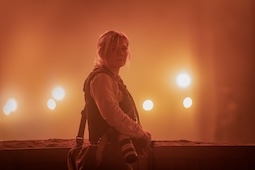
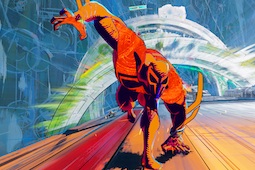
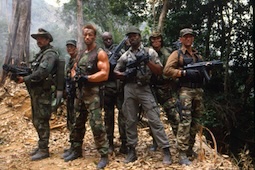
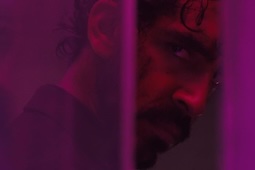
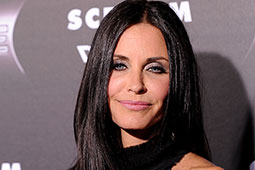
.jpg)
.jpg)

.jpg)
.png)



